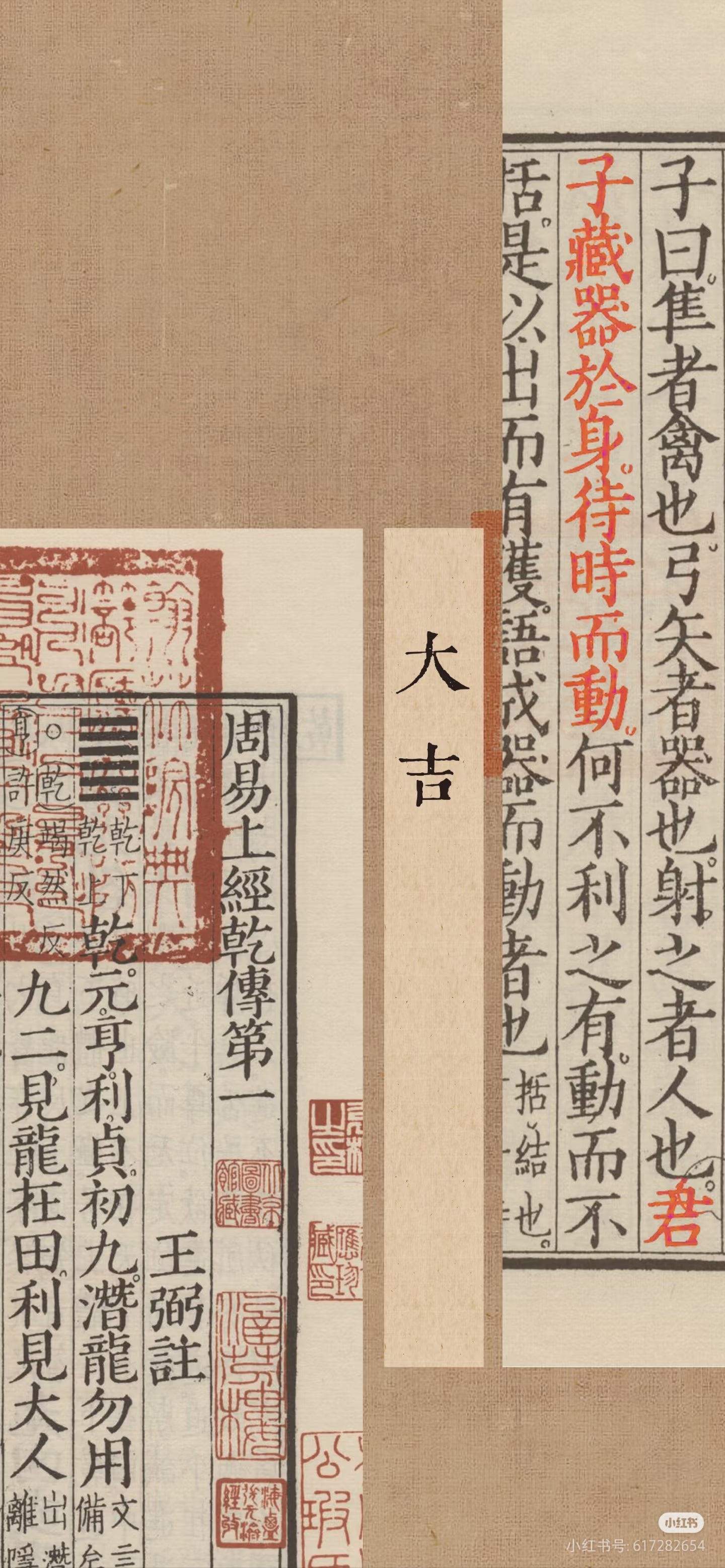Hexagram 27, Line 5
The Corners of the Mouth (颐)
六五:拂經
The Line Text
六五:拂經,居貞吉,不可涉大川。
The sixth line, yin: Turning from the path. Remaining steadfast brings good fortune. One may not cross the great water.
The Commentary says: "Remaining steadfast brings good fortune" means to be docile and follow what is above.
Interpretation
This is a pivotal and paradoxical line. Line 5 is the position of the ruler, but it is a yin (receptive) line in a yang (strong) place. This signifies a leader who is aware of their own limitations. The "path" or "norm" (經) for a ruler would be to personally provide nourishment for all. However, this line advises "turning from the path" (拂經). This is not an act of rebellion but of profound wisdom. The ruler recognizes they lack the personal strength to nourish everyone directly. Instead of overreaching, they turn from this conventional expectation and adopt a different strategy. Their good fortune comes from "remaining steadfast" (居貞) in this awareness. They achieve success not through their own direct action, but by relying on a higher source of wisdom and sustenance (represented by line 6) and by entrusting the practical work to a strong and capable subordinate (the corresponding line 2). The warning, "One may not cross the great water," reinforces this. This leader should not undertake great, independent enterprises that rely solely on their own power. Their strength lies in stillness, delegation, and drawing upon the resources of others.
Guidance for Action
You are in a position of influence or responsibility, but you may feel you lack the resources or personal strength to meet all expectations. The wisest course of action now is to deviate from the conventional approach of trying to do everything yourself. Acknowledge your limitations; this is a sign of strength, not weakness. Your primary task is not to be the source of all solutions, but to be the wise coordinator. Identify capable people you can delegate to and trust them to do their work. Simultaneously, seek guidance and draw inspiration from a higher source—a mentor, established principles, or spiritual wisdom. Avoid launching major, risky projects that depend entirely on you. Your success will come from steadfastly managing the situation from a position of strategic oversight, not from heroic, hands-on effort.
For Love & Relationships
In your relationship, you may feel an immense pressure to be the "perfect" partner—the one who provides all the emotional, financial, or practical support. This line advises you to turn away from this impossible standard. You cannot and should not be the sole source of nourishment in the relationship. Trying to do so will lead to exhaustion and imbalance. Instead, remain steadfast in your love and commitment, but allow yourself to be receptive. Rely on your partner's strengths and let them support you in turn. Acknowledge that you need them as much as they need you. This is not a time for grand, unilateral romantic gestures ("crossing the great water") but for building a sustainable, mutually supportive partnership. Your good fortune lies in creating a balanced flow of giving and receiving.
For Career & Business
As a leader or manager, you cannot be the expert on everything or do all the work yourself. "Turning from the path" means you must abandon the idea of being the heroic boss who has all the answers. Your true value lies in your ability to orchestrate the talents of your team. Delegate significant responsibilities to your most capable people (your "line 2"). Trust their competence. Your role is to remain steadfast in the overall vision and strategy, drawing guidance from senior leadership or core company principles (your "line 6"). Do not initiate massive projects that hinge entirely on your personal involvement ("crossing the great water"). Your success and that of your team depend on your wisdom to lead by empowering others, not by direct command and control.
For Financial Matters
This line strongly cautions against a "do-it-yourself" approach to significant financial matters. You may feel you should be able to manage your investments or finances entirely on your own, but the situation calls for a different strategy. "Turning from the path" means recognizing the limits of your own financial expertise. The path to "good fortune" is to remain steadfast in sound, established principles while relying on the help of qualified experts. This is the time to hire or listen to a trusted financial advisor, accountant, or wealth manager. Avoid making large, speculative investments or undertaking complex financial ventures on your own ("crossing the great water"). Your security will be found in prudent management and reliance on professional counsel, not in risky, independent action.


